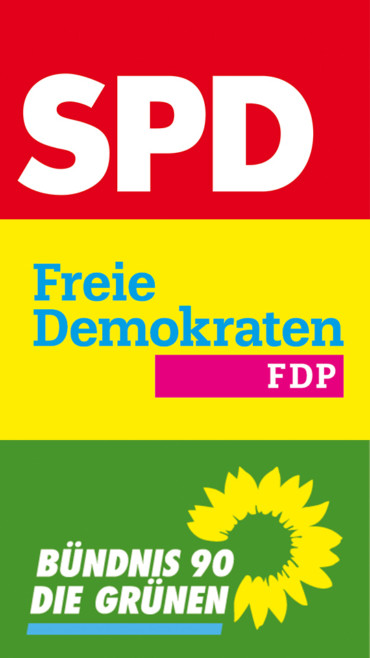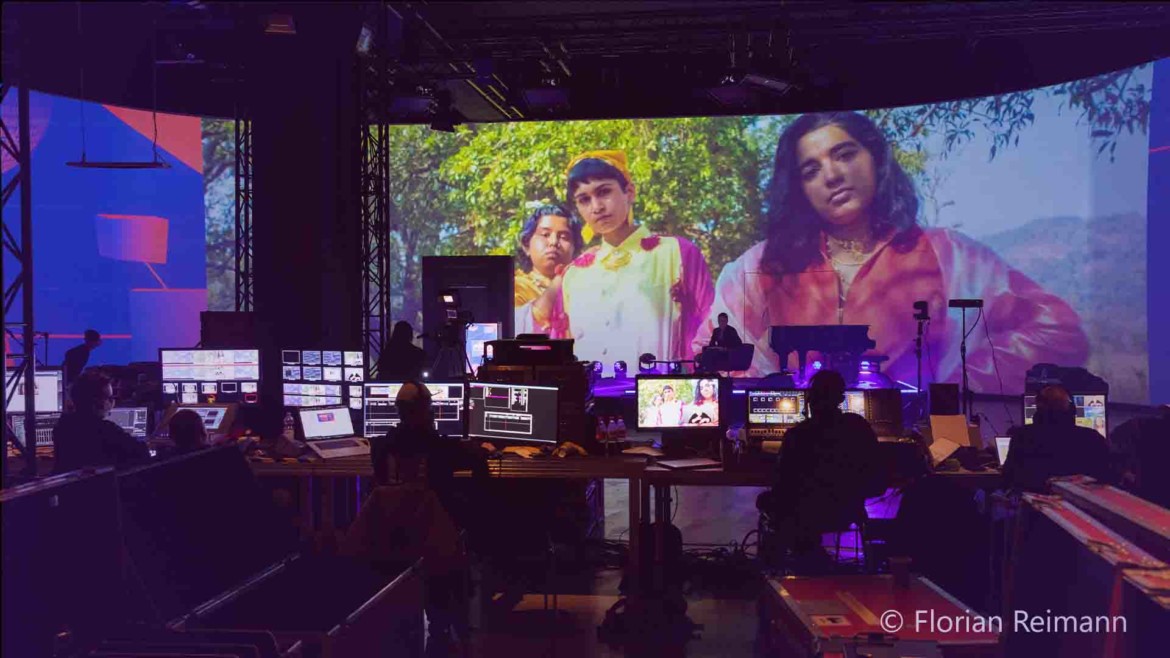The new coalition at the federal level consisting of the SPD, the Grüne and the FDP wants to “dare more progress” in the coming legislative period. At least that is what the headline of their coalition agreement, which was signed on 7th of December, claims. How does it look in regard to this progress in the field of cultural and creative industries? In the run-up, there were some demands from the interest groups, but also from the Chancellor’s Office on the part of the outgoing Federal Commissioner for Culture and the Media (BKM) Monika Grütters, who held this office for the last few years. Among the best-known demands is the state goal of culture, which has been under discussion for many years, as well as the establishment of a separate Ministry of Culture, including state secretaries and the corresponding substructure.
CORONA IN MEMORY
A lot has happened in the last few years in terms of cultural policy. But what people remember most are the last two years of the pandemic that paralysed large parts of the cultural and creative sector from one day to the next. And as is now evident, the threat of further closures is steadily casting its shadow over the cultural sector. At the moment of the first lockdown, it suddenly became unmistakably clear what social and also economic significance the cultural and creative industries have. And it also came to light which sub-sectors are well organised and can assert their interests before political decision-makers and which are less so.
A good example was provided by club culture in cities such as Hamburg, Cologne and of course Berlin, where the interest groups campaigned for the necessary support and were relatively quickly successful. It was exactly the opposite with the large mass of solo self-employed in the creative sector. They were little or not organised at all and with all the diversity of jobs and fields of work, many of them fell through every possible support grid. A migration into other professional fields was the result and is still a problem. The coalition agreement of the traffic light government addresses this problem; here, the crisis of creative artists triggered by Corona at least seems to be having an effect.
MORE SECURITY FOR CREATIVE WORKERS

Inside the Reichstag building – © CHRISTIAN LUE
In the future, solo self-employed and hybrid-employed creative workers are to be provided with better social security. In concrete terms, this means that tax-financed economic aid is to be introduced that can take effect in the event of a loss of earnings that is not self-inflicted, such as a cultural lockdown. In addition, access to voluntary unemployment insurance should be simplified for creative workers. This would somewhat alleviate the great insecurities of creative workers and possibly also result in a greater increase in young people, which the sector urgently needs.
In the same way, the planned future obligation for the self-employed to provide for their old age should also mean more security. In addition to access to the statutory pension insurance, other provision models are also possible here, provided if they are safe of insolvency and attachment. Such ideas are not new and have been discussed for a long time. But it is only the Corona crisis that seems to have made the necessity of such regulations clear to politicians.
Corona has also changed the way the artists’ social security fund is dealt with. Previously, a certain percentage of the total income had to come from artistic work. If this was not fulfilled, artists lost the right to continue to be members of the KSK. This turned out to be fatal for many artists during the crisis, as they could not earn money from their own art, but income from other sources would have led to exclusion from the KSK. Fortunately, there was a political reaction to pressure from the interest groups and the regulation was suspended. In the coalition agreement, it is planned to continue to suspend or permanently change it in order to make it easier for creative artists to generate non-artistic income free of consequences in emergency situations in the future.
CULTURE IN THE CONSTITUTION
Proclaiming culture as an objective of the state has been discussed time and again since the early 1990s and has been steadily advocated from many sides. Now, finally, it will come and culture will be enshrined in the Basic Law. This is already the case in the state constitutions – the only exception being Hamburg. But what exactly does that actually mean? “State objective provisions are binding principles and guidelines for state action,” it says in the state of affairs of the scientific services of the Bundestag on the topic of “Culture as a State Objective in the Basic Law“ from 2020. And further: “For the administration and courts, they serve as a scale in the interpretation of laws or the filling of legal decision-making latitude. State objective provisions instruct state bodies to observe the corresponding requirements within the framework of the constitutional order.”
The executive director of the German Cultural Council, Olaf Zimmermann, puts it more simply in an interview with 3Sat. Because ultimately, he says, it’s all about the one sentence, “The state protects and promotes culture.” This can be very important, especially for interest groups, when it comes to putting pressure on certain demands. If, for example, savings are threatened, then in the future it will no longer be so easily possible to make them bypass culture and thus the state’s objective. At the latest when such decisions end up in the courts, this formulation could be of great value for culture and creative people as well as their economic sectors.
NO CULTURE IN THE CHANCELLOR’S OFFICE?

The Chancellor’s Office in Berlin – © TOBIAS
In the run-up to the election, there were calls from various quarters for a separate ministry for culture. So far, these tasks have been taken over by the BKM, which is located in the Chancellor’s Office. Monika Grütters of the CDU held this office for the last two legislative periods. In the last eight years, the department has grown considerably and now has 400 employees who oversee a cultural budget of two billion euros.
In the past, Grütters had always spoken out against an independent ministry, as locating it in the Chancellor’s Office would have brought advantages in terms of visibility, as Grütters explains in the interview. In the meantime, however, she has relented and sees advantages in the establishment of a Ministry of Culture. She justifies this concession with the increasing importance of the office and the growing workload, which the staff could hardly manage. If the department is to be separated from the Chancellor’s Office, then it should have its own ministry. This is Grütters’ reaction to a statement by Robert Habeck, who suggested merging culture with other departments in one ministry, as the outgoing BKM explained elsewhere.
However, the coalition does not comply with this demand. It will remain with the BKM in the Chancellor’s Office. The office will be taken over in the coming legislative period by the experienced Grüne politician Claudia Roth. Since the topic of culture will take up more space overall and appears as a cross-cutting theme in many places in the coalition agreement, a great deal of coordination will be necessary on her part. So the fact that there will be no separate ministry for this important area is bad news.
FOCUS ON THE CREATIVE INDUSTRIES
On the other hand, it is good news that there will be a direct contact person for the cultural and creative industries in the Chancellor’s Office. During the crisis, there was a lot of uncertainty and chaos among creative professionals, as no one really knew who they could turn to.
The NEUSTART KULTUR programme will continue to exist in the future, which is a positive sign for creative workers. What is special about the programme is that the conception of the individual support programmes for the different activities and professional fields was done together with the federal cultural institutions and foundations, which tried to take into account the very different needs. In the field of music and festival, for example, the Initiative Musik, with whom we had spoken about NEUSTART KULTUR at the beginning of the year, is entrusted with this.
Even if the coalition agreement does not fulfil all demands and the future BKM will have a lot of work to do due to the lack of its own ministry, the importance of culture and the cultural and creative industries has definitely arrived in federal politics. This is a good sign and we are very excited about the next four years.
The coalition agreement is available as a PDF here.







Leave a Reply